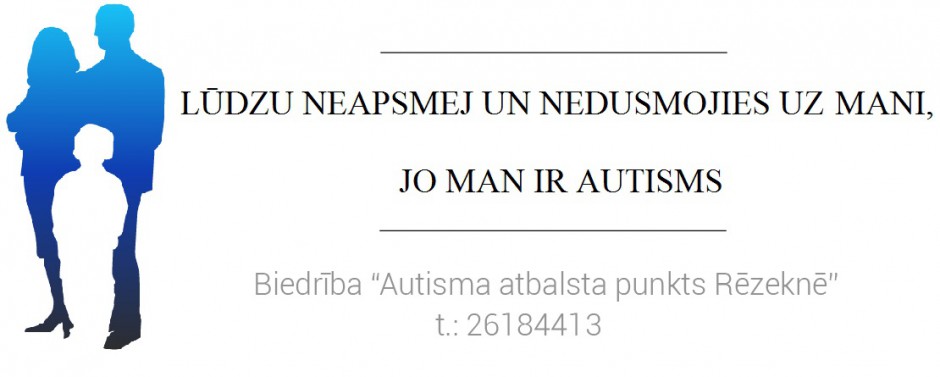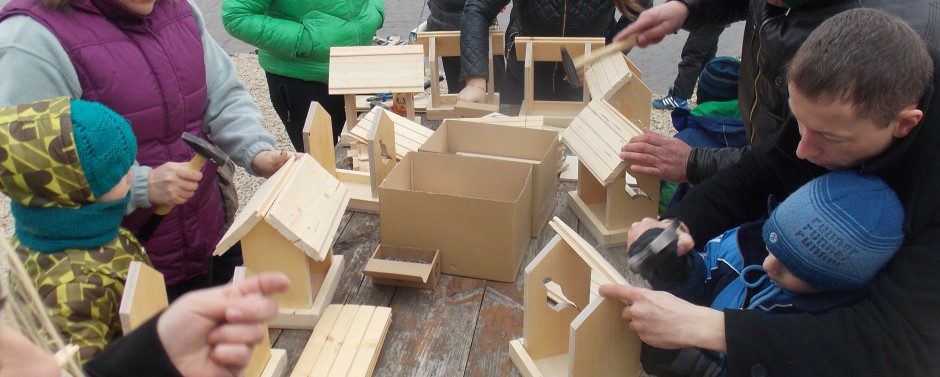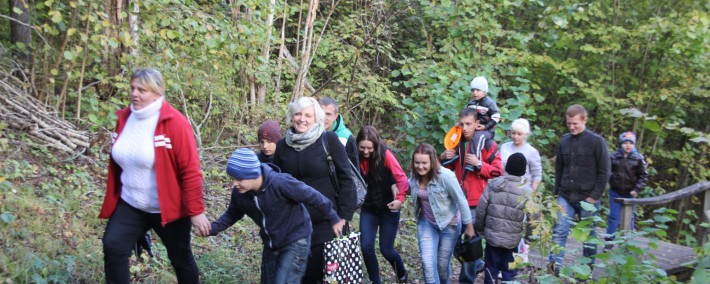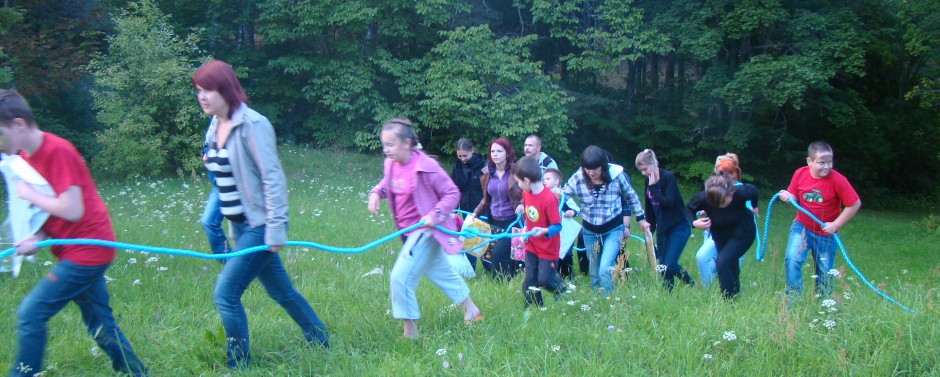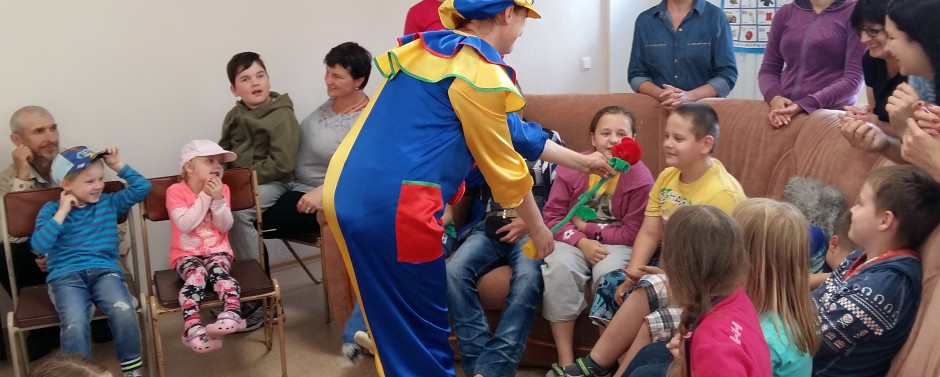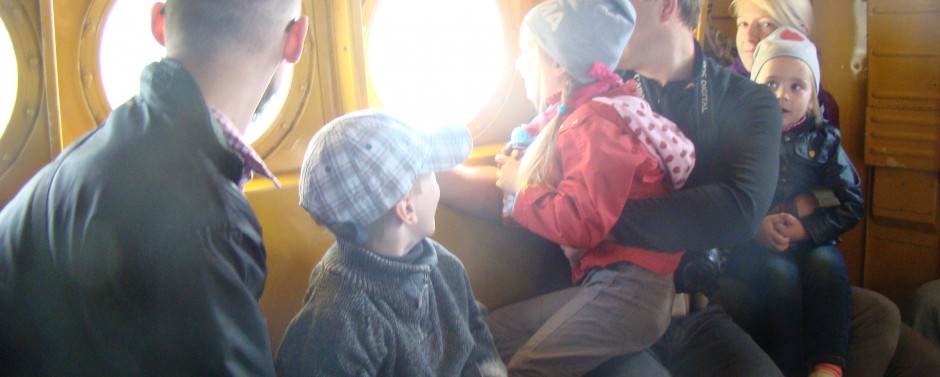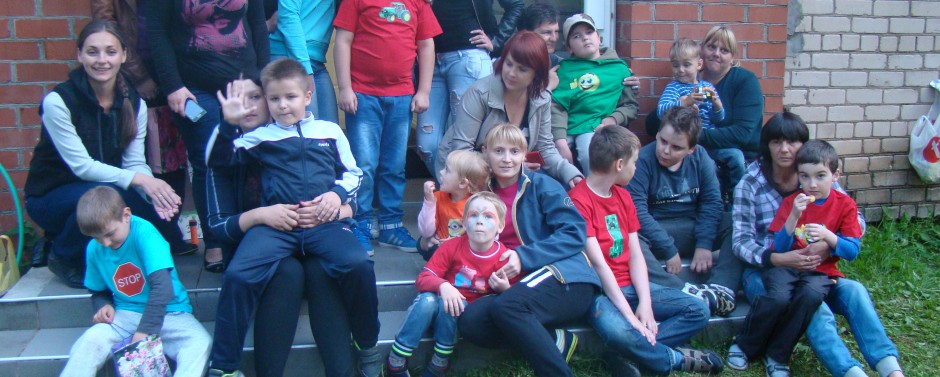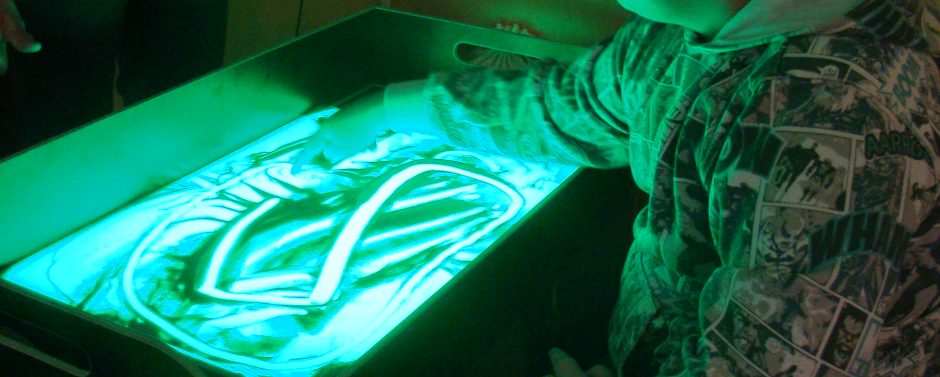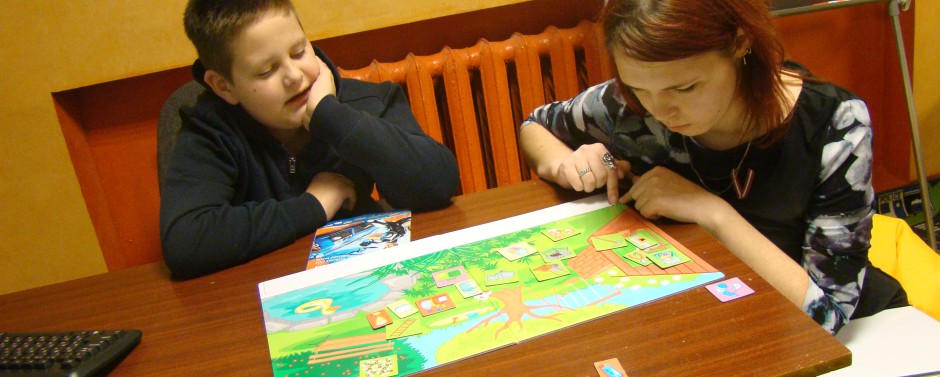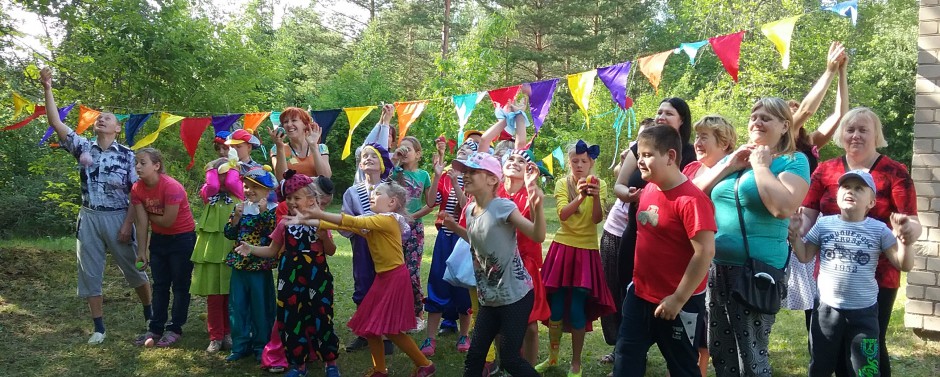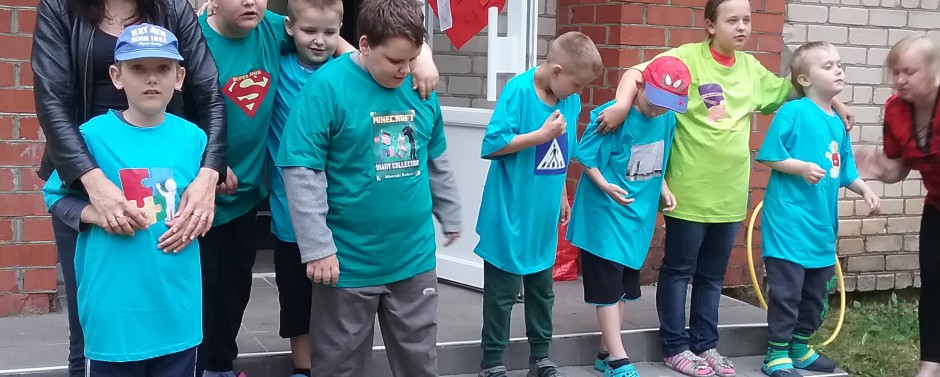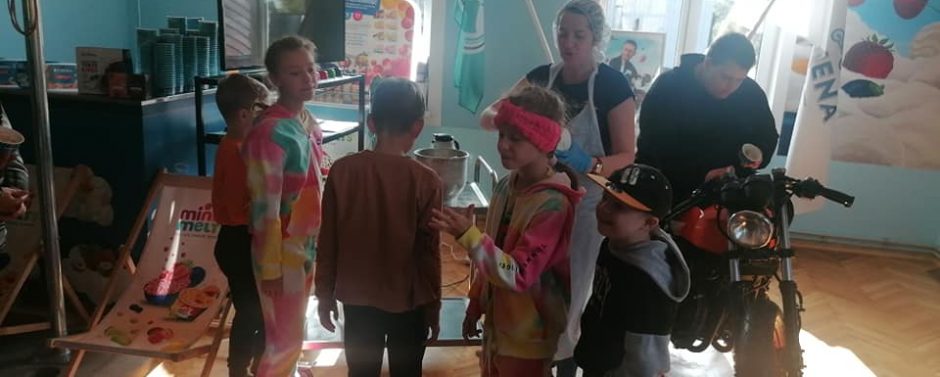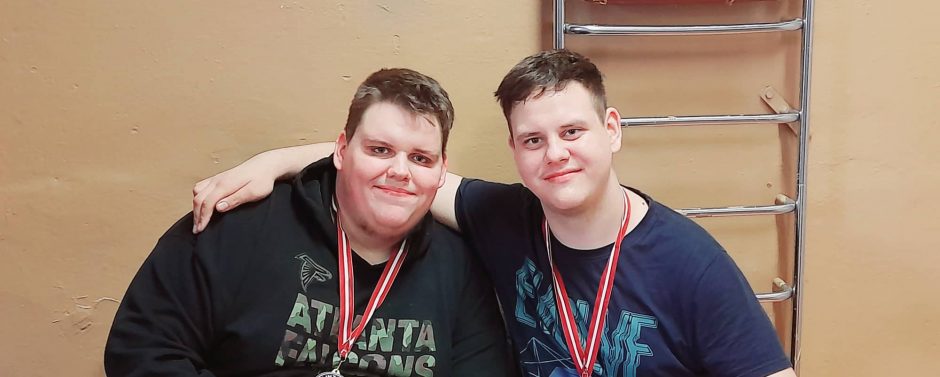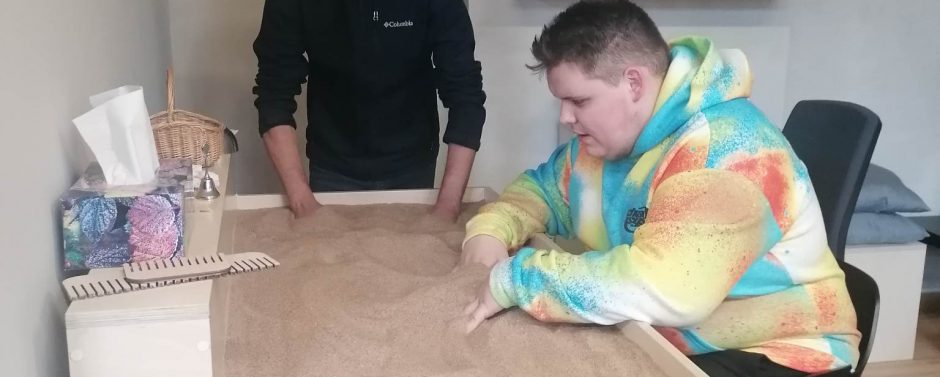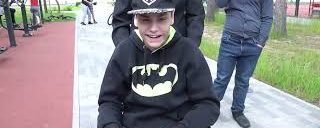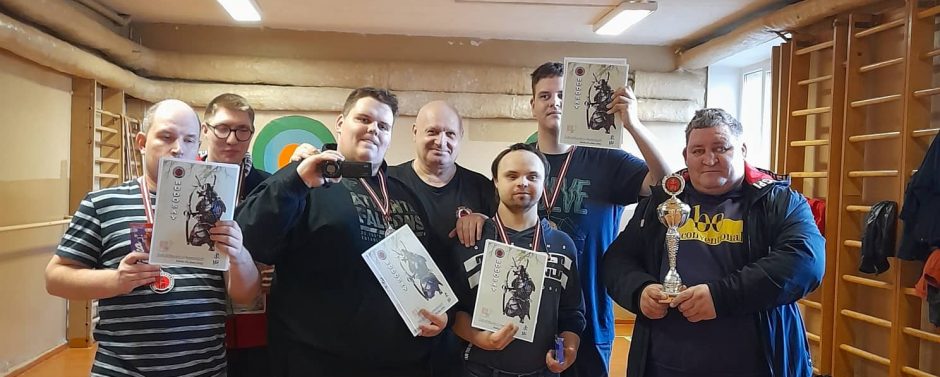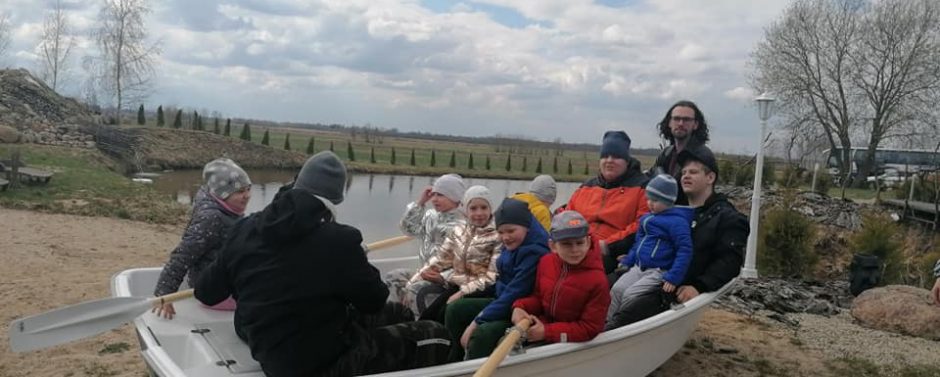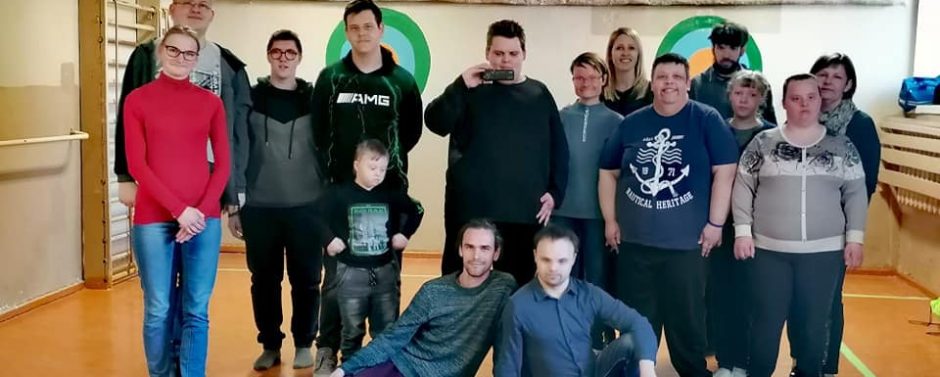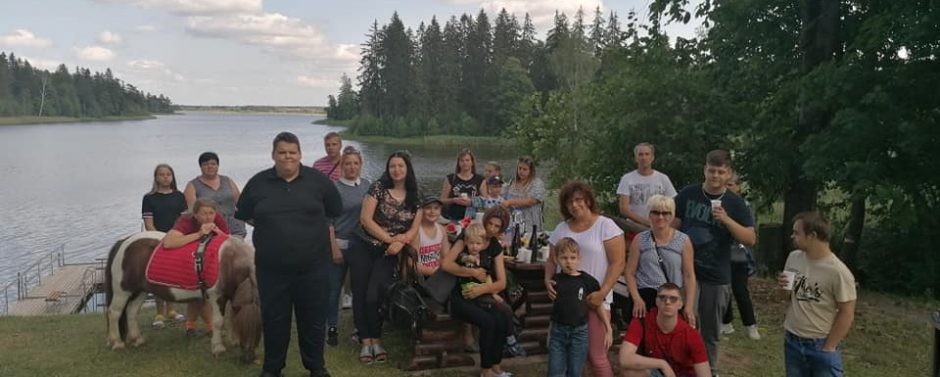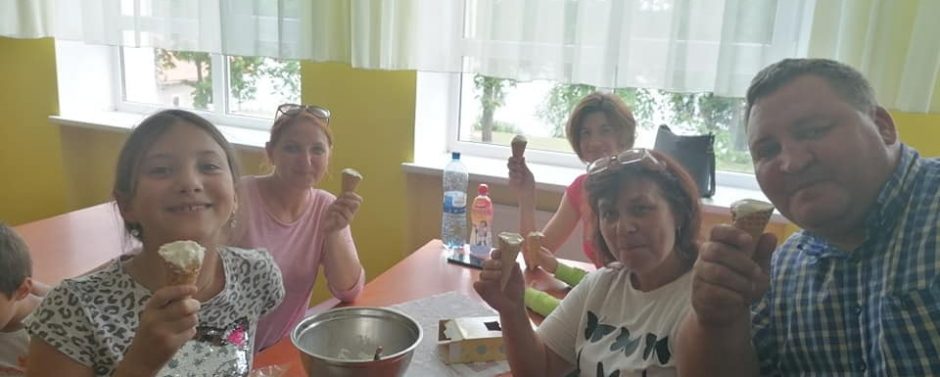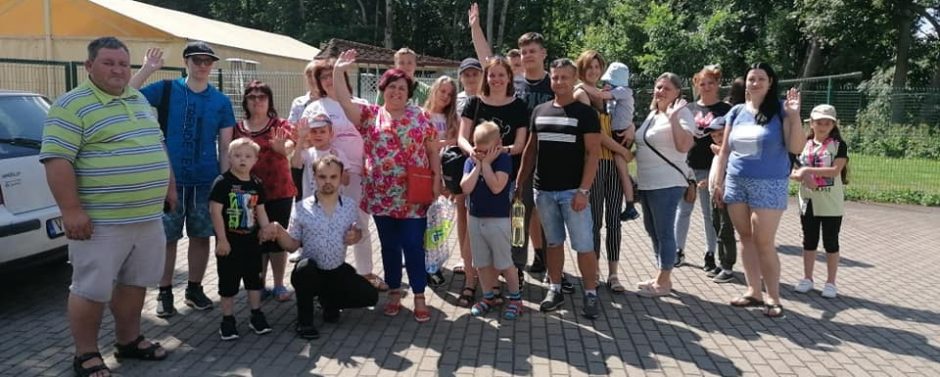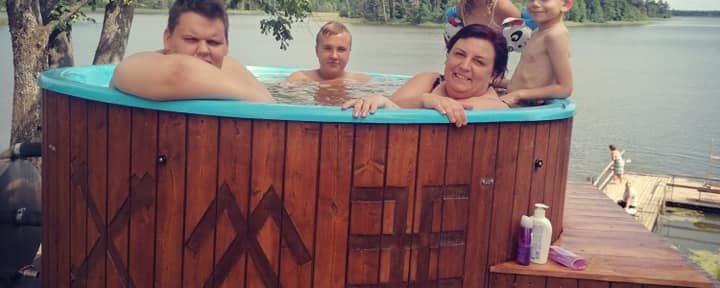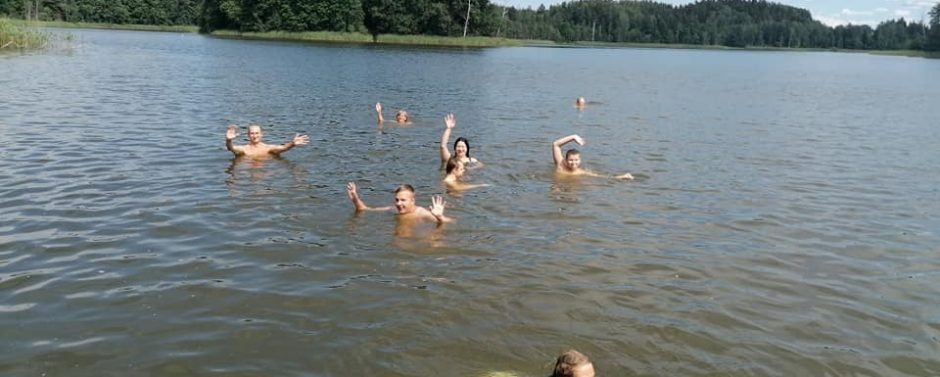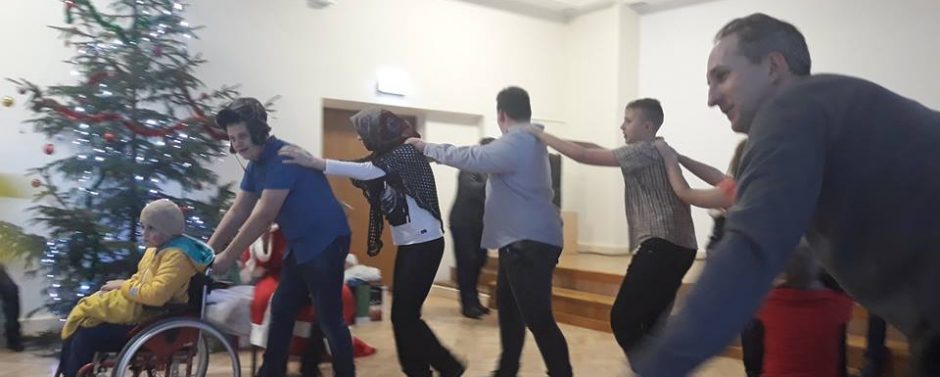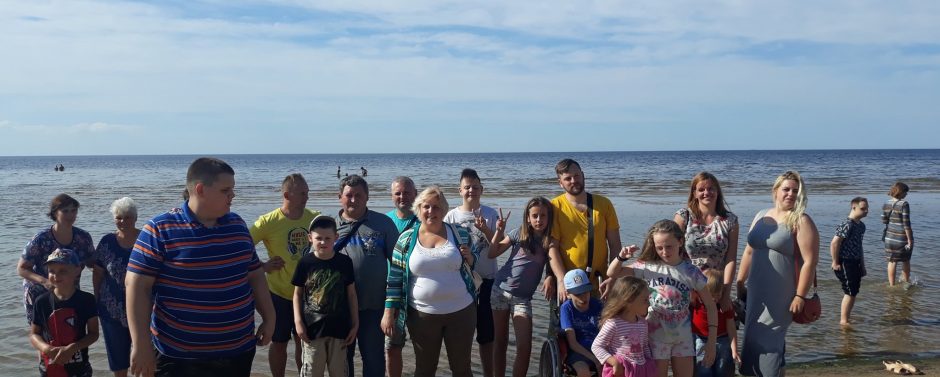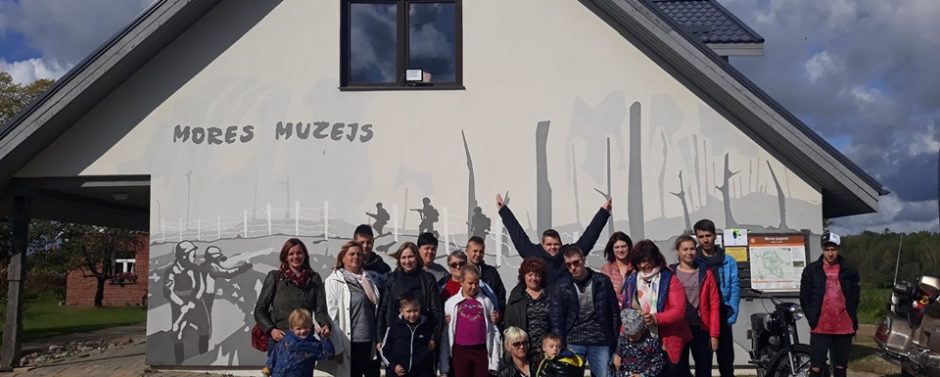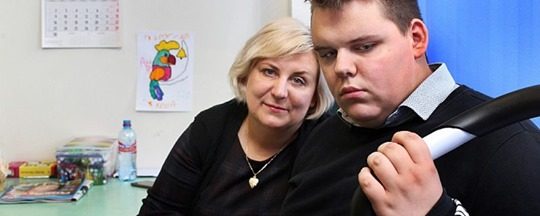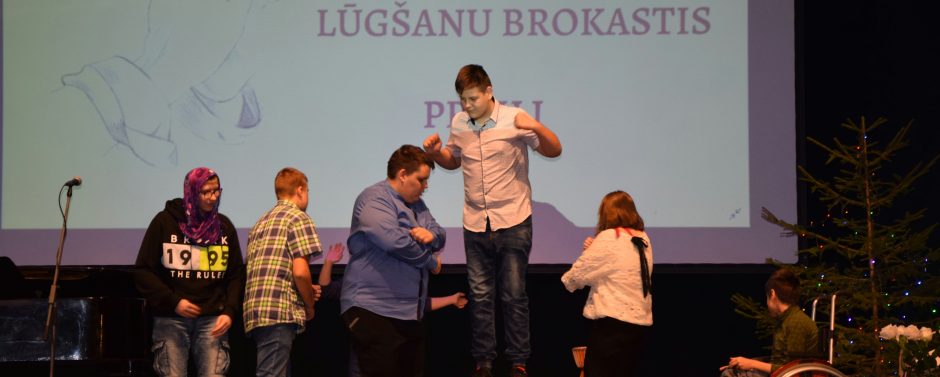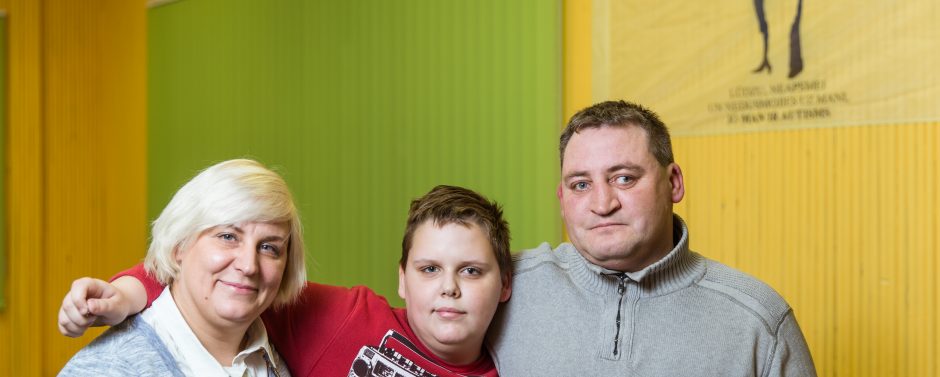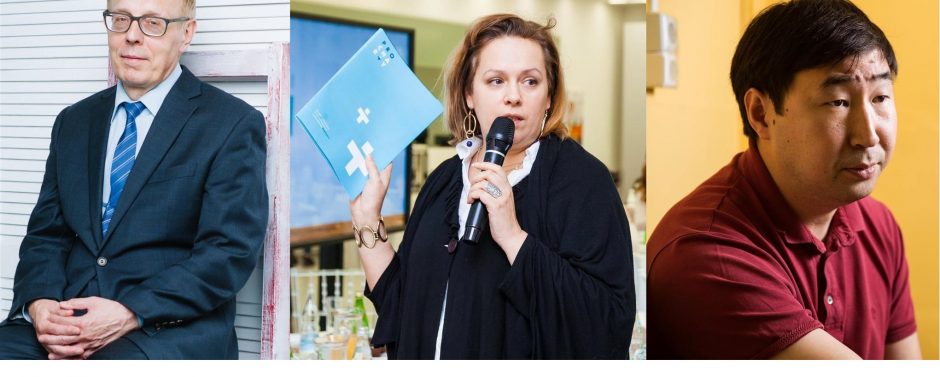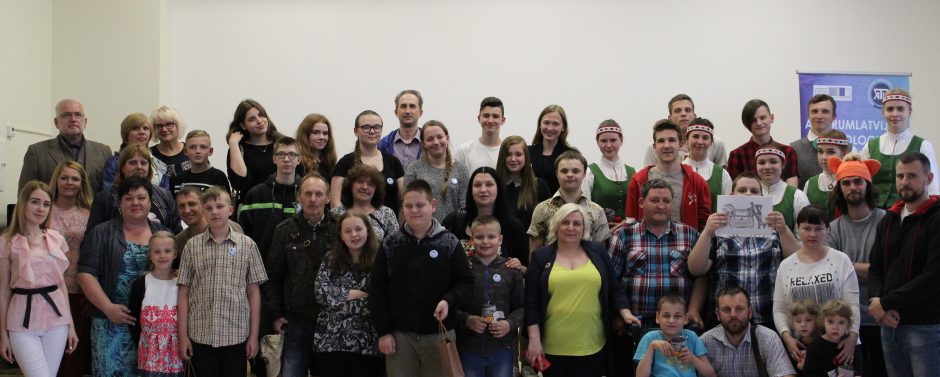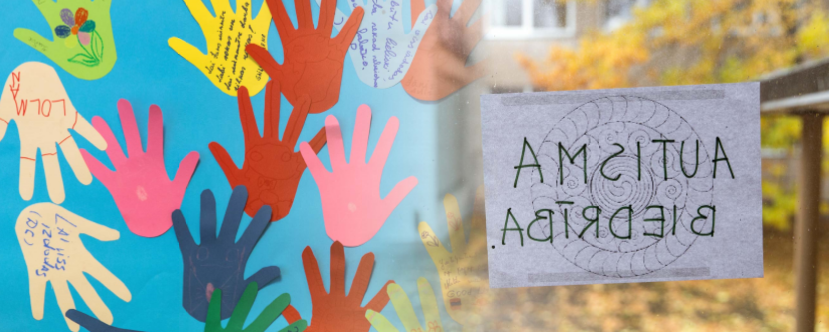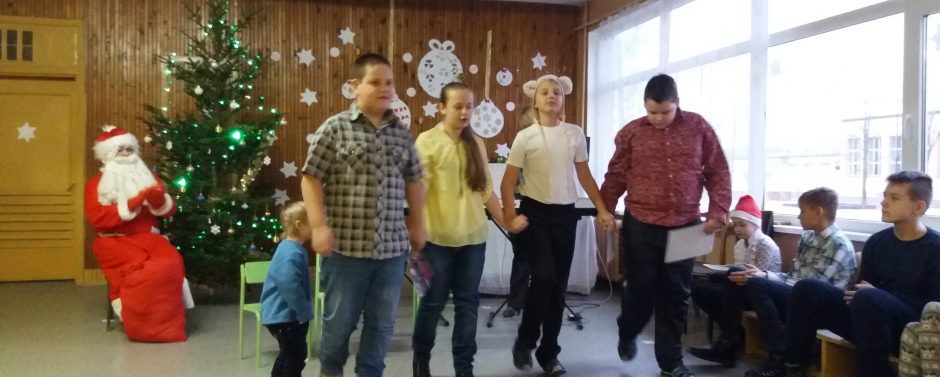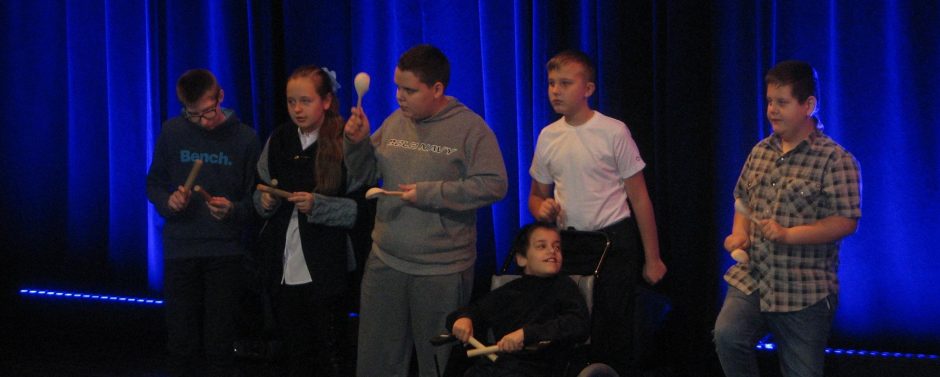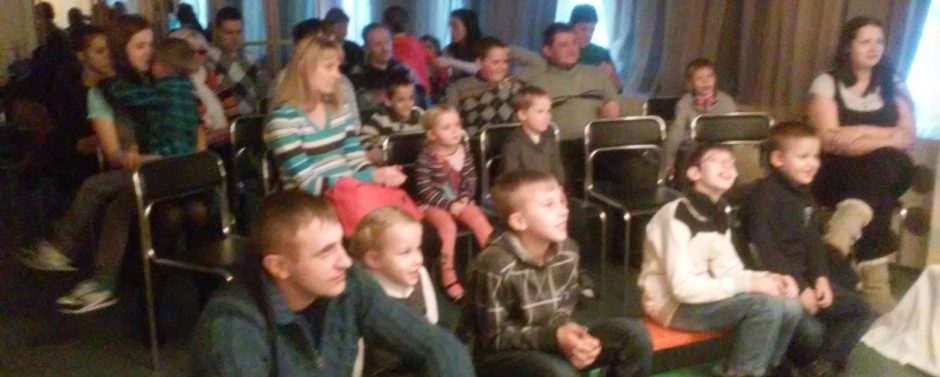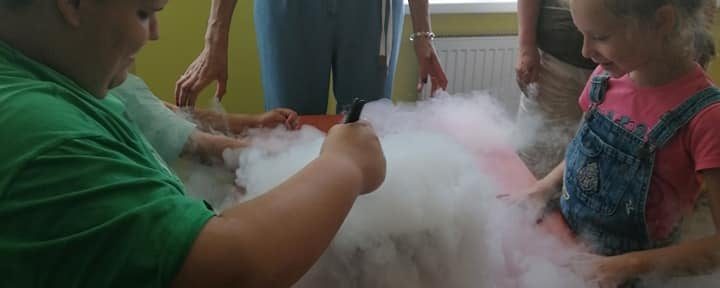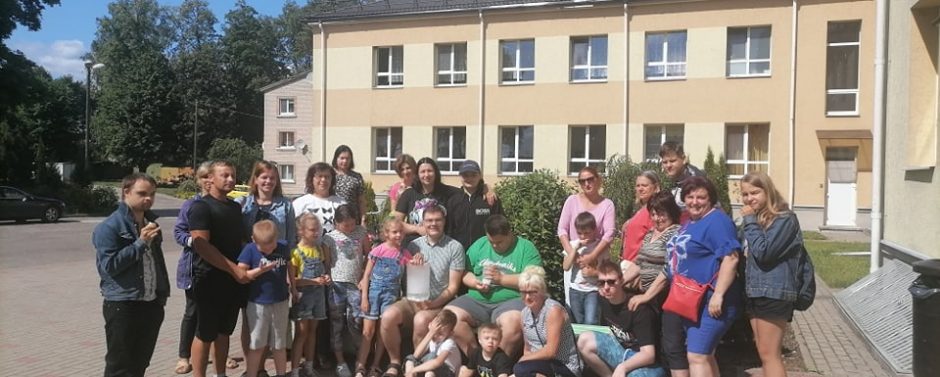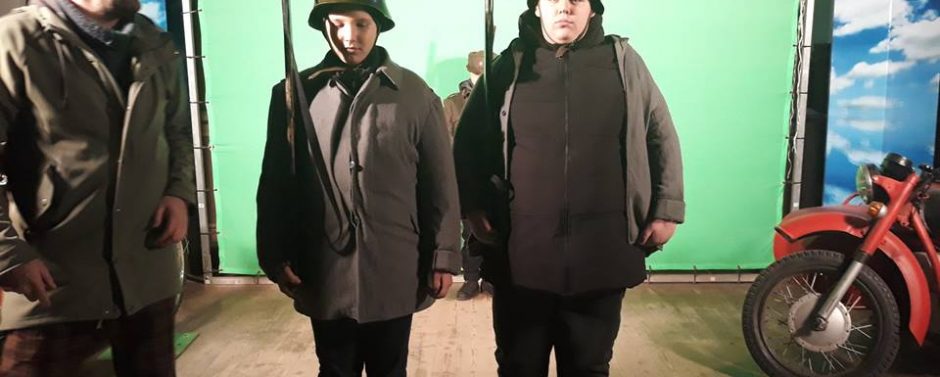Hope for children with autism in Rezekne
A great job has been done by the Silins (Šilins) family who have founded the association Autism Support Point in Rezekne (Autisma atbalsta punkts Rēzeknē). Now parents who have children with autism can bring them to this city from all over Latvia: the association arranges the urgently required therapeutic activities, organises specialist consultations and has even formed a hobby theatre group.
On the day we visited the Autism Support Point in Rezekne in a boy or girl on the waiting list comes in accompanied by parents, not only from Latgale, but also from Riga, Baldone, Saldus. A father has even flown with his son from England. They take turns in the reception room where doctor Alexander Munkuyev (Aleksandrs Munkujevs) from a St. Petersburg clinic receives them. The opportunity to see this specialist is paid by the association from donations they receive. How do they find the sponsors? Mainly with the help of mass media by asking for donations for the treatment of a specific child. It is not possible to receive help of donations from organisations, because we are still discovering ways of healing in Russia, he adds aggressively.
Autism. For those who have not met it before, the word means almost nothing. Many parents whose children are diagnosed with autism spectrum disorders from not knowing anything soon become experts because they search and pick up all the information to better understand how to help their offspring. Soon they come to the conclusion that they have to care for their children’s development themselves because centrally organized support from the state and municipalities is both insignificant and insufficient.
Kaspars Purvlicis (Kaspars Purvlīcis) with his son Ronalds has come to the consultation from England.
“Before I had not heard a lot about autism, nor did I think about it much. When the boy was two years we noticed that he was behind other children. We started asking in England, but their help is global, there is nothing individual. We arrived at the Autism Centre in Riga. There a doctor said that it could be autism spectrum disorder. Afterwards we went to a psychiatrist, a speech therapist and micro speech therapists. For all that we have done, we received different suggestions, how to work with the child. In England they start doing something after the age of five, Lithuania (son’s mother is Lithuanian) offers even 40 state paid psychotherapy sessions – it is a big bonus. Latvia is still behind. On the Internet I found an article that asked for donations for the treatment of a boy in a St. Petersburg clinic. I started researching it and I heard about the Autism Support Group in Rezone. I contacted Edgars and we talked about possibilities of a programme or suggestions on how we could proceed. The biggest problem was that we could not communicate with our son, but maybe it was possible to change that.
Doctor Munkuyec said that in St. Petersburg there are two programmes which we could apply for. So there was hope of changing something. The understanding of the child changes, he grows, fights, but it will not happen productively unless he is receiving professional support.”
Samanta Gaile with son Renars (Renārs) live in Rezekne regional community and regularly drive to the Autism Support Point in Rezekne
“A diagnosis is not made in one process. In the beginning Renars ears were examined because hearing problems were suspected. Afterwards when we were in the hospital again, they said that he had mixed development disorders. Then when the boy was older and could complete some tests, the diagnosis was made – atopic autism. You have not heard about it before and then you find out that it is brain damage that will continue throughout life and it is a shock. Luckily, I met Sandra. She had gone through this stage, that is why she did not reject her advice. Without the association it would be hard, because it is like this – we came from Riga with the diagnosis to our doctor in Rezekne who says: no speech – audio speech therapist, self-care is at a low level – an ergo therapists is required. I was searching for information, because I had not heard of such doctors before. I called all outpatient clinics and other institutions… No audio speech therapist, no ergo therapists! It was a lucky coincidence that when Renars had to start kindergarten he got a place in a speech therapy kindergarten, because no one knew how to handle such a child in a regular kindergarten. We have become a member not only in this, but also in other associations to receive the help of more specialists, Perhaps I sound boastful, but in Rezekne we are the first for specialists. We do not have them here, but for children with autism to improve, regular activities are required. Thanks to everyone who carries out such projects!”
Neurologist Alexander Munkuyev, St. Petersburg Medical Centre Prognoz
“I do not wear the white overall because children associate it with hospital, pain.” At the invitation of the Autism Support Point in Rezekne he has come for the second time to consult in Latvia to ensure that those to whom it is possible to help receive help and those who cannot be helped do not build up hopes in St. Petersburg. “The stay and treatment in the clinic must be paid for! If they come and we cannot help, the parents are very disappointed. They start talking – deceived, deluded, but our clinical results are good” According to each child’s development peculiarities the clinic adapts the therapy, for example, if there have sound perception difficulties, there are three different methods of treatment – American, Russian and French. These children are taught to hear. “You are calmly talking to me, but at the same time the rain drops are falling on the window sill, somewhere the door is closed, someone is talking in the next room, the daytime lamps are humming. Fora child with autism and with sound perception disorders all of this may sound like a terrible mess – he cannot distinguish which ones are the main sounds and which are unimportant background noises. With a special programme we can teach him to distinguish speech from other sounds. The child learns how to hear when he is being addressed, he understands that he has to turn to the speaker.”
Tatjana Jakubova, a child psychiatrist in Rezekne, also supports the association through her work.
“Alone I cannot diagnose autism, it is performed by a clinical psychologist or hospital doctors. I can only express my suspicion. I am not always the first person to whom people turn when they suspect autism, sometimes I am the last. It depends on there being aa attentive general practitioner. Another cause of late diagnostics is that parents hide the child’s problems, they cannot admit to them. They hope that these are only behaviour disorders, not autism, because when they hear this diagnosis they know it is connected to the attitude of society – society does not welcome such a child. A child with autism goes to a regular kindergarten, but other parents ask to take him out of it or move to another, specialized one. If the child has autism, for the parents it means a change in their whole life, focusing their attention on their offspring. It means taking medication, getting the diagnosis, finding a disability group… Some parents use the support to go to all possible activities and specialists, but others do not do that, some even say no to the possibilities of receiving support for a disabled child – they have less interaction with it. Some even do not allow the children out of the apartment. They become apparent only at the age of five when compulsory school begins. But very often it is already too late – for a child with autism the most important period is development stage and possibilities of help until the age of seven.”
Edgars Silins with wife Sandra and son Markuss
Three-year-old Markuss did not speak yet, he just makes a few sounds, and does not look in other people’s eyes. We drove to doctors in Riga, he was diagnosed with autism and sent home. That was it! Sandra intensively searched for information. We understood that the disease cannot be healed, but that it possible to achieve improvements. We understood the significance of activities and the importance of communication. Doctors in Latvia told us that our son will never speak. We drove to the specialized clinic in St. Petersburg. There Markuss received various treatment – massages, physiotherapy, music therapy for two weeks, but most important – micro polarization was performed. It is a patented, scientifically proven method for stimulation of certain regions of the brain. The course has 10 sessions. After the first session he started to speak. Now Markuss speaks in Latvian, Russian, English, even better than I do.
I have also observed a lot of interesting things in my son. Markuss can memorize huge amounts of text. For example, by watching a 10minute cartoon three to four times he knows all of the text by heart, he can imitate the intonation and emotions, something I cannot do.
I am lucky, because the boy is curious.
Of course, autism will continue throughout his whole life. It causes unpredictable behaviour, talking to oneself. Besides Markuss has evolved so far that he can perform very quickly the tasks set for his corresponding level of education level in school. Afterwards for the continuing half an hour he has nothing to do. Logically he cannot sit still. That is why we have chosen individual lessons, almost like home-teaching in school – some subjects he studies in class together with other children, but some he studies separately.
STARTED FROM OUR
Edgars Silins tells us how he, together with his wife, came about setting up the association. “I will not hide that everything started with the wish to help our boy. Afterwards one family asked to for help, then another one and another, and another. Now there are already 32 families in our association.” Edgars and his wife Sandra Bickova-Silina (Sandra Bičkova-Šilina) do everything that is in their power to help their eleven-year-old son Markuss to adapt to life in a society.
“We have a specialist audio speech therapist from Vaivari rehabilitation centre, ergotherapists, a specialized teacher and a music therapist. Families bring children from other areas so that they can at least have one activity. As I was once told by a politician, associations organize seminars and conferences, but here you perform actual work with kids. I have been to five seminars myself, my wife too… We understood that it is better to undertake something in this matter.”
Autism spectrum disorders can be very different. Some sufferers cannot handle interrelationships with others due to hearing disorders, others cannot look into people’s eyes. Another can have a taste disorder – cannot eat anything that comes in pieces, everything has to be mashed into a porridge. Other children smell everything. The basis of the problem are the interrelationship difficulties of children with autism. That is why first you have to understand what is delaying the communication and then try to remove the obstacles. For example, Markuss did not know how to speak. Sandra tells us that the boy screamed every time when in winter he had to wear gloves. “It is cold outside, his hands are like ice, but gloves – no, never!” After a few years when Markuss learned how to communicate, he explained – he did not want to wear gloves, because then the palms of his hands would disappear.
LOOKING IN THE DIRECTION OF RUSSIA
To achieve development there is no panacea that would resolve all problems with a magic wand. The Autism Support Point in Rezekne concentrates on a variety of therapies and also on cooperation with the St. Petersburg clinic. “We have signed a cooperation agreement, a specialist comes here once a year, examines the children and comes to the conclusion which we can help and which not. Unfortunately, improvements are not possible for all. Last year of a total of 12 children we had to say to six that you can go home. Together with my wife we organized a campaign, collected money, so we could pay the transport expenses, stay and treatment. We managed to send five families. Children could receive a full course of treatment and two of them have improved – they could not speak before, but now they can communicate. Of course in their language and peculiarly, but they can.”
There are no establishments like the St. Petersburg Clinic in Latvia. Edgars tells us that the clinic cooperates with the Russian Brain Institute where a variety of research is done, new methods and technologies are developed to treat autism and other disorders. The clinic puts innovation into practice. “We have also agreed and every year we drive to find something new,” added Edgars.
DON’T WANT TO THINK ABOUT THE FUTURE
What happens to children who do not receive therapy? “They sit at home by their computers. A lot of children with autism are put into boarding-school. There are teachers, nannies. They are cared for and looked after, but there is no development” a view held by Edgars. Sandra agrees with him: “I also think that boarding-schools only fulfil the function of looking after.” There is a shortage of specialists. “We do have speech therapists, diplomas are issued, but when it comes to actual work with children, nothing works. They do not know how to communicate,” Edgars observed.
When I ask what will happen to Markuss when he grows up, Sandra waves her hand with tears in her eyes and says – I do not want to think about it. Edgars informs that the faith of grownups with autism in Latvia frequently leads to the specialized care homes. “When he has sat in boarding-school until the age of 18 years, he is moved to a care home where again he continues to sit.” The view of the association’s head is that the people with autism should learn a trade, because many like to work with their hands. “One boy gladly repairs shoes – nails heels, another works with wood. Why can it become his profession?” Currently people are talking a lot about deinstitutionalization and integration of disabled persons, but Silins family does not want to wait, when these intentions achieve actual form and reach the people with autism. Edgars reveals the family plans to move their life to St. Petersburg where there is also a specialized school for children with autism. As sad as it is, but for now he does not see grand growth perspectives for the association so that it could form something similar in Latvia.
WORKING EVERY DAY
The Head of the Latvian Autism Association Liga Berzina (Līga Bērziņa) praises the people in Rezekne for what they have achieved. “It is wonderful that they work on an ongoing basis and consistently. Other associations function only during a campaign – they collect money for a specific definite purpose and that is that. Constancy in actions is a great support for the parents of the children, it helps to lessen depression,” she says. It is known that parents of children with autism “burn out“ because they are pushed to subordinate all their life to the needs of the child – the daily regime, clothing, activities, walks. “You have to work with kids every day. It is tiring. Some families have great support almost in the whole family, but some grandparents turn away – maybe it is hard for them to accept that their only long-expected grandchild does not live up to their hopes. Also divorce is not rare in these families. Then the association is really a support and if it stops, the person can lose hope.”
“Autism is a difficult diagnosis,” says Liga Berzina. “About two years pass while they diagnose it and two more until the parents admit it and start to work with the child.” There is a period when the father and mother of child with autism really hope for a miracle, which can be, for example, therapy with dolphins, where there is no scientific proof. There are also doubts about the methods used in the clinic in Russia. “Sometimes when they arrive the children improve but it can be explained by the fact that parents focus all their attention on the child for these two weeks. They have the exclusive attention of their parents that is why they have a rapid improvement. Some families live like this from one to the next therapy with dolphins, but with children with autism you have to work regularly, every day,” the head of the association points out.






